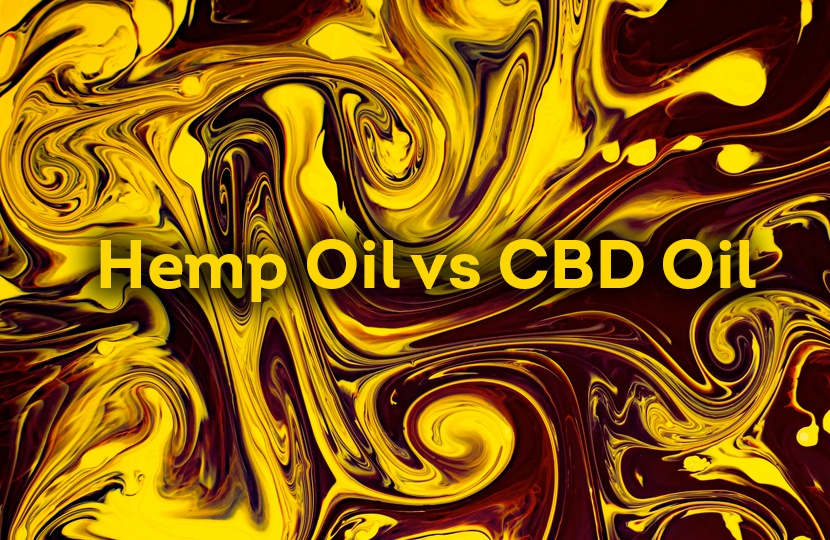In your search for cannabis products either in-store or online, you’ve probably encountered plenty of oils. You may have even purchased and tried some before.
One thing you might have noticed is that some products are labeled “hemp oil,” some are labeled “CBD oil,” and to top it off, you also have “hemp seed oil.” Which one should you choose?
For those who have been consuming cannabis for decades, it’s a no-brainer. Of course, not everyone is at the same experience level, so for those who are new to the practice, the choice may not be nearly as obvious. If you’re stuck on which oil to pick up, relax and read on because we’re going to help you understand the differences between hemp oil and CBD oil.
Hemp Oil Is Actually Hemp Seed Oil
Before we begin, it’s helpful to know that the term “hemp oil” is sometimes used to describe CBD oil. This is due to the fact that they both come from hemp plants. A more proper name for this type of product would be “hemp seed oil.”
What makes hemp seed oil so different from CBD oil (or plain old hemp oil) is that it is extracted from industrial hemp seeds that have been cold-pressed. The end result is a product free of cannabinoids, so there are no psychotropic effects to worry about.
At this point you’re probably thinking “What? No cannabinoids? Why would I want hemp seed oil then?” Well, trust us, it does have its uses.
Hemp seed oil is a fantastic source of nutrients like omega-6 fatty acids, omega-3 fatty acids, vitamin B, and vitamin D, just to name a few. As a result, it is great for cooking and is often used as an ingredient in specialty food items like bread, yogurts, bars, and other snacks.
People who consume hemp seed oil may notice improvements in their skin’s appearance, digestive health, immune system, and more. Some research even suggests that this ingredient can reduce blood pressure, slow down plaque buildup, slow the aging process, and fight cancer cells. Sure, you may not get the benefits of cannabinoids from hemp seed oil, but it clearly has some powerful healing applications of its own.
CBD Oil
CBD oil is made using ethanol or CO2 to extract compounds from the leaf, stalk, and flower portions of hemp. Like its name suggests (and unlike hemp seed oil), this product does have terpenes and cannabinoids and is particularly rich in CBD.
There are three general categories of CBD oil: full-spectrum CBD, broad-spectrum CBD, and CBD isolate. A full-spectrum CBD oil contains trace amounts of THC, but not enough to cause any undesired effects. Still, if you want to avoid THC completely, broad-spectrum is free of said cannabinoid, but it preserves many of the plant’s other elements. Of course, some people just want pure CBD, in which case CBD isolate is the way to go.
Some evidence points to a wealth of benefits from consuming CBD oil, including relief from pain, swelling, depression, anxiety, arthritis, insomnia, and more.
Finding What’s Right for You
As you can see, both oils have their advantages. Part of your cannabis education is not only learning what different products do, but what your body needs. The more you expand your knowledge base of product options and their benefits, the more easily you can find the perfect treatment.
Always be cautious when shopping for oils. While hemp seed oil is FDA-approved and widely available, CBD oil is not quite as universally accepted — at least not yet. In most cases, if a product’s THC content is below 0.3%, it’s legal, however, CBD oil does not have the same level of regulation in place. This leaves customers susceptible to products that are ineffective, or in some cases, filled with harmful byproducts. Although it’s easier now than ever before to find stores that sell CBD oil, your safest bet is to purchase from a trusted dispensary.
For more information, visit Bloc Dispensary
Resources:
https://www.health.com/mind-body/cbd/hemp-oil-vs-cbd-oil
https://papaandbarkley.com/learn/hemp-oil-vs-cbd-oil/
https://www.medicalnewstoday.com/articles/hemp-seed-oil-vs-cbd-oil#hemp-seed-oil

